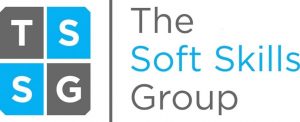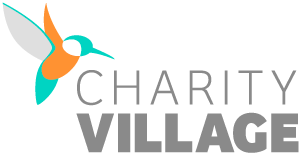This course focuses on tools and strategies to experience success when communicating your thoughts, opinions, plans, and ideas at work. You will learn about the importance of body language, ways to structure your conversations at work so that they are meaningful, impactful, and valuable, and the art of influencing and persuading others to ‘buy-in’ to, even when you are not in a position of authority or the decision-maker.
Learning Objectives
By the end of this course, you will be able to:
- Understand what body language means.
- Explain how we communicate using body language.
- Successfully utilize body language in your communication with others.
Course Curriculum
Part 1: Useful Body Language Techniques
Correctly reading and interpreting nonverbal behaviour makes you a better communicator and a more understanding individual in your communication with others. By understanding how to communicate ‘positively’ with language, we positively impact our relationships with others.
Gestures and body language communicate as effectively as words. It adds clarity to our communications and enables us to be generally more persuasive by responding appropriately to what others tell you non-verbally.
Part 2: Conducting Valuable Conversations
Communication skills are the essential skills that drive your work relationships and allow you to demonstrate your skills, knowledge, competencies, and thoughts on the job. Create conversations where you can use modern best practices to ensure agreement of meaning and build relationships – every time.
The best modern-day practices for successfully delivering your spoken communicated messages, both with more considerable influence and persuasion, are here for you to learn. You will learn how to manage difficult conversations and situations through effective communication choices.
Part 3: Persuasion & Influencing Skills
Persuasion, when used positively, can be a powerful way to move along the decision-making process. As we make better and better decisions, our ability to influence increases along with our relationships. It is imperative that you increase your sphere of influence wherever you intentionally can. This learning will provide you with the best modern-day practices for successfully delivering your spoken and written messages, both with more significant influence and persuasion.
Course Access & Bundle Duration
This course is on-demand, meaning that you can take it anytime, at your own pace. It will take you approximately 45 minutes to complete from start to finish.
You have one year (365 days) to open and complete this course from the date of purchase before it will automatically expire in your account. However, once you open it for the very first time in your account, you will have unlimited access to complete it within 90 days.
Course Level/Prerequisites/Certification Credits
Introductory level, no prerequisites.
Final Exam
The final exam is optional but highly recommended. If you choose not to complete the final exam, the course status on your eLearning dashboard will show as incomplete and you will not receive a certificate of completion.
Written and Developed by The Soft Skills Group

We pride ourselves on our ability to develop dynamic solutions to address our client’s needs. We are committed to seeing our clients succeed in their challenging and changing environments. The Soft Skills Group trainers have the expertise and the experience to bring corporate best practices to clients.
We have worked successfully with over 80 corporate clients in many industries —including finance, telecommunications, health care, manufacturing, transportation, natural resources, not-for-profit and governments, and crown corporations. The Soft Skills Group has worked with organizations within education, finance, law, nuclear energy, various public service organizations, and in both profit and not-for-profit fields.
About the Course Authors

Diana Kawarsky, MA, CCP
President
Diana has over 20 years of experience working with more than 20,000 business professionals, effectively improving their management and communication skills to achieve higher impact results. She holds an MA Degree, is a Certified Coach Practitioner and twice published author and World Guru in Communications.

Sheldon Kawarsky, PhD
Vice President
Sheldon has over 20 years of experience holding manager and director roles in the private and academic sectors, focusing on business development and fostering relationships with companies, universities, government organizations, and venture capitalists. His strength is in relationship building and clarifying the needs of clients to ensure their training maximizes their return on investment.




